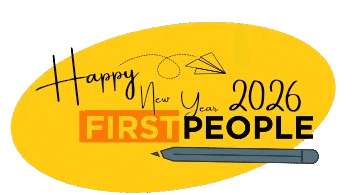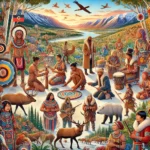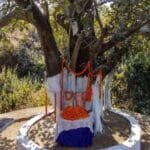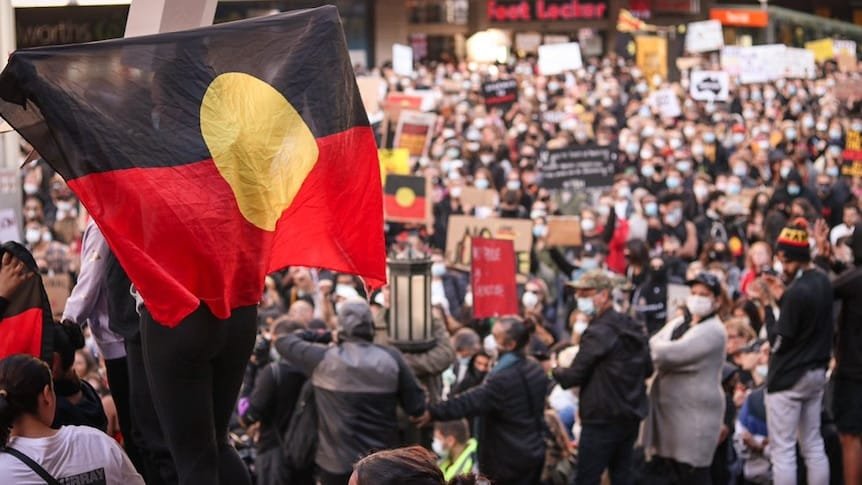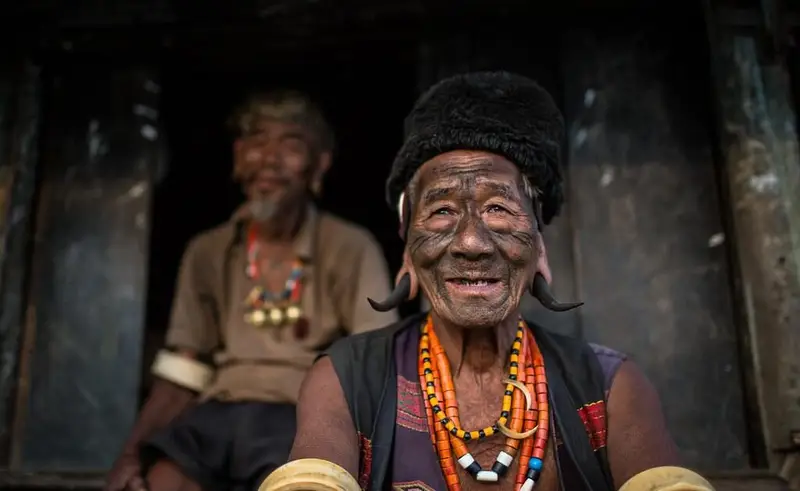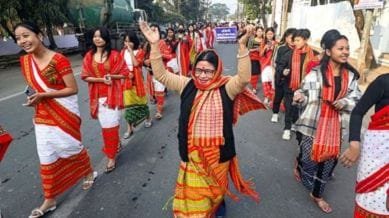Indian Migrants in the Crossfire
Australia often prides itself on being a multicultural society. But that image has cracked wide open in recent weeks.
On 31 August 2025, thousands took to the streets of Sydney, Melbourne, and other cities under the banner of “Stop Mass Immigration.”
Protesters claimed that mass migration was responsible for:
skyrocketing house prices,
job shortages,
and overwhelming pressure on healthcare and public services.
But behind the slogans, the target was clear: Indian migrants.
Ahead of the rally, posters appeared across Melbourne that read:
“In five years, more Indians came than Greeks and Italians did in a hundred.”
Indian students reported being abused in the streets. Families were spat on. Many were directly called “invaders.”
Yet what unfolded in Melbourne that day reached far beyond immigrant communities.
Camp Sovereignty: A Living Symbol of First Nation Resistance
In the heart of Melbourne lies Kings Domain Park, home to Camp Sovereignty.
First established in 2006, the camp was built by Aboriginal activists who lit a sacred fire—a fire that still burns today.
Camp Sovereignty is not merely a protest site. It is a living embodiment of First Nation sovereignty and resistance.
This land is sacred. It holds the burial grounds of ancestors from 38 Aboriginal communities.
As one Elder once said:
“This is not just a camp. This is our Parliament, our Church, our Embassy.”
The Attack: August 31, 2025
When the “March for Australia” ended in Melbourne, a faction of the crowd broke away.
Carrying metal pipes, flagpoles, and clubs, they descended on Kings Domain.
They targeted Camp Sovereignty:
The Aboriginal flag was set on fire.
Elders and women were attacked.
One woman was hospitalized with serious injuries.
The assault was not random. It was led by Thomas Sewell, a well-known neo-Nazi figure in Australia.
The message was unmistakable: silence the First People.
Aboriginal Voices Speak Out
In the aftermath, First People voices rang clear:
“They came to silence us. But we are still here. This is our land.”
“When they burn our flag, they remind us of 1788—the real invasion.”
Senator Lidia Thorpe declared: “This was not just violence. It was a direct attack on First Nation sovereignty and sacred ground.”
A young Aboriginal activist put it bluntly:
“They call migrants invaders. But the truth is—they invaded us first.”
Media Silence and Selective Outrage
Coverage of attacks on Indian migrants dominated headlines. Politicians rushed to condemn the violence. Television debates raged over immigration policy.
But the assault on Camp Sovereignty? Barely a footnote.
An Aboriginal activist observed:
“When migrants are attacked, it becomes a national debate. When First People are attacked, it is treated as history repeating itself.”
This silence echoed centuries of dismissal of Aboriginal voices.
Law, Justice, and the Question of Sovereignty
Police arrested several attackers. Courts denied bail to Thomas Sewell, citing his danger to society.
But for the First People, justice is not measured by arrests alone.
Justice means:
Recognition of sovereignty never ceded,
Protection of sacred sites,
And, above all, acknowledgment of the truth.
Echoes of History
The attack on Camp Sovereignty is not an isolated event. It is part of a long history stretching back to 1788:
When British ships declared “Terra Nullius”—land belonging to no one.
When Aboriginal communities endured massacres, displacement, and cultural destruction.
When generations of children were stolen from their families.
And when, in 1972, the Tent Embassy was erected in front of Parliament with the declaration:
“We never ceded sovereignty.”
Camp Sovereignty is the continuation of that same struggle.
Today and Tomorrow
Despite the attack, the sacred fire at Camp Sovereignty still burns.
The flag, once reduced to ashes, has been raised again.
Children play in the camp. Elders share stories. Songs of mourning and resistance rise into the night air.
As one Elder said:
“We have survived 250 years of invasion. We will survive this too. But our sovereignty will never end.”
The story of Camp Sovereignty is not merely one of violence—it is one of truth, resistance, and survival.
Immigration may dominate today’s debates. But the deeper question remains the same as it has for centuries: Invasion.
And whenever anyone claims “migrants are invaders,” the voices of the First People cut through with unwavering clarity:
👉 “You invaded our land first. Sovereignty was never ceded.”
